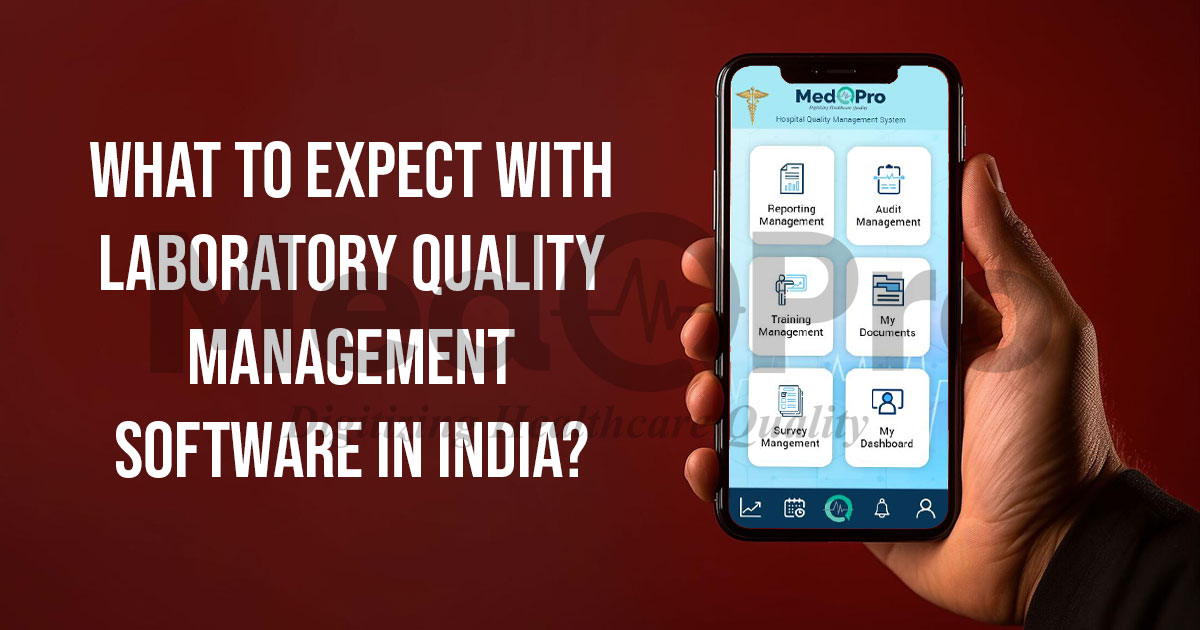Compliance and quality control are crucial in highly controlled laboratories running at a fast pace. Medical Labs often have to follow strict regulations, run complicated procedures, and handle private information. Labs are using technology to maximize their operations as the volume of work rises and maintaining high standards becomes more important calls for attention. Software for the Laboratory Quality Management System (QMS) is used in this situation.
Software for laboratory QMSs is made to support labs in keeping their operations accurate, efficient, and compliant. Through the integration of many quality management processes into a unified platform, this software facilitates task automation, performance monitoring, and industry-standard compliance for laboratories. Labs are adopting Laboratory QMS software at an increasing rate to decrease mistake risk and increase operational efficiency. The main advantages of utilizing Laboratory QMS software and how it may completely transform laboratory operations will be discussed in this article.
-
Enhanced Efficiency and Productivity
Improving productivity and efficiency is one of the main advantages of Laboratory QMS software. In quality management, manual procedures are frequently laborious and prone to mistakes. Labs may automate repetitive operations like sample tracking, document control, and equipment calibration with Laboratory QMS software. Laboratory employees may concentrate on more essential duties because automation reduces the time spent on these chores and lowers the possibility of human error. Consequently, laboratories can enhance productivity, handle samples more quickly, and consistently fulfill deadlines using the Lab management software.
-
Improved Compliance with Regulations
Adherence to industry norms is essential for laboratories, especially those involved in food testing, environmental analysis, and pharmaceuticals. Advanced Laboratory QMS software for hospitals in India offers capabilities for documentation, audit trails, and remedial actions, ensuring that labs follow the relevant standards. The program can produce reports that show adherence to legal specifications, which makes it simpler for labs to pass audits and stay out of trouble financially. Furthermore, by tracking and managing regulatory changes, the program ensures that labs are always up-to-date with the latest standards.
-
Better Data Management
Since precise data is necessary for making defensible decisions, data management is crucial to laboratory operations. A consolidated platform for handling and storing data is offered by laboratory QMS software, guaranteeing that all data is well-organized and easily accessible. Labs can now track samples’ origin, processing, and analysis because of this improved data traceability brought about by centralization. Better data management enables labs to swiftly detect problems, like departures from established protocols, and take appropriate action. Maintaining laboratory results’ integrity and ensuring they can be consistently replicated depends on this degree of traceability.
-
Enhanced Communication and Collaboration
Effective communication and teamwork are essential as several teams and departments frequently collaborate on intricate tasks in a laboratory setting. Better communication is facilitated by laboratory QMS software, which offers a platform where authorized workers can access all pertinent information. This openness lowers the possibility of miscommunications and mistakes while ensuring everyone is on the same page. Furthermore, the lab management software facilitates collaboration by permitting numerous users to work concurrently on the same documents or procedures. This cooperative setting guarantees that tasks are finished quickly and helps to optimize operations.
-
Streamlined Risk Management
In laboratories, risk management is a crucial part of quality control. Laboratory QMS software provides tools for recognizing, evaluating, and reducing risks connected to laboratory procedures. Labs can use the program to log occurrences, perform risk assessments, and put corrective and preventative actions (CAPA) into motion. Laboratory QMS software simplifies risk management so that labs can deal with possible problems before they become more serious, which lowers the chance of errors and raises overall quality.
Conclusion
Maintaining strict quality and compliance standards becomes ever more crucial as the laboratory sector gets more competitive and governed. Laboratory QMS systems provide many advantages that can help labs lower risks, guarantee compliance, improve data management, and increase efficiency. By investing in this technology, laboratories can improve productivity, cut costs over time, and attain better results. Laboratory QMS software by MedQPro will probably be used even more widely as the need for accuracy and efficiency grows, solidifying its position as a necessary tool for contemporary laboratories.


